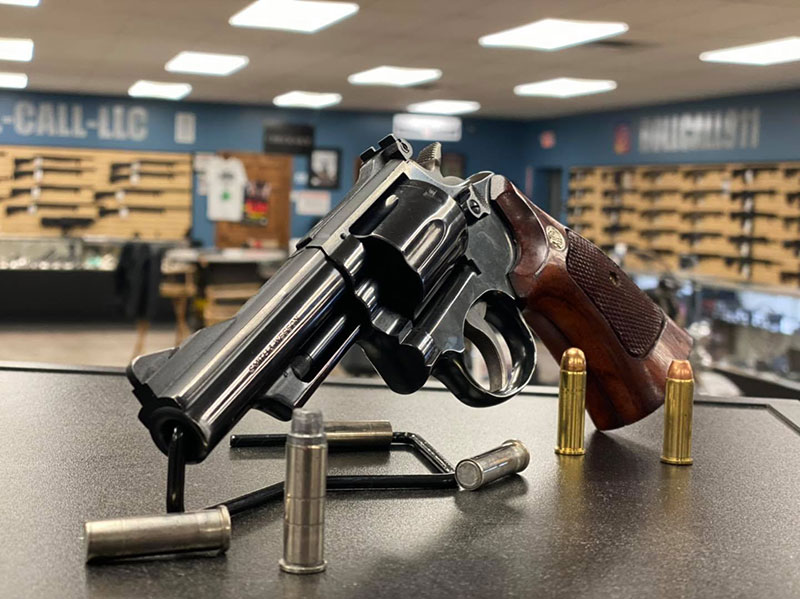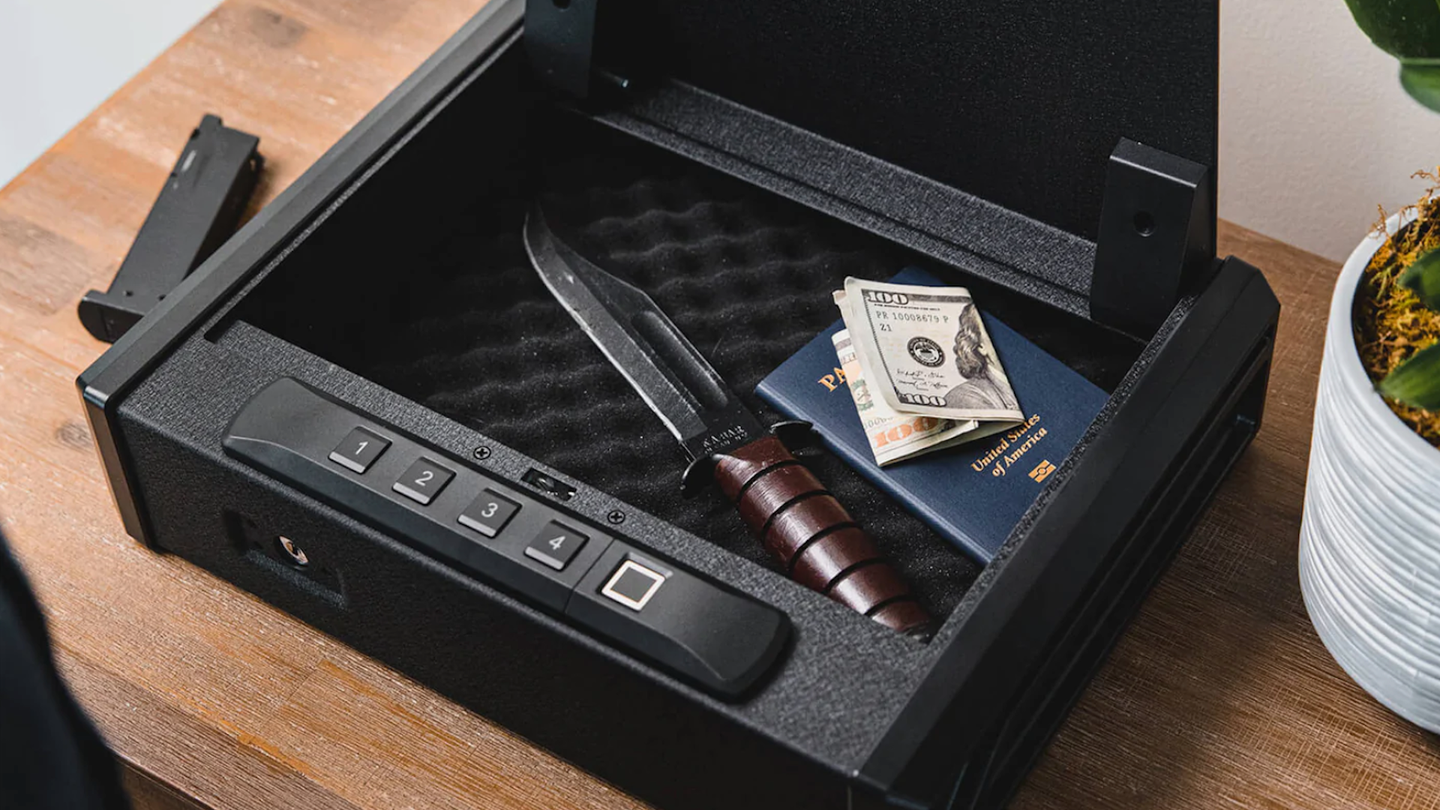Visit the gun range as frequently as your training needs and personal goals dictate, typically ranging from once a month to weekly. Regularly heading to the gun range is crucial for maintaining and improving shooting skills.
Engaging in shooting practice at a gun range is vital for anyone looking to enhance their marksmanship or maintain firearm proficiency. Whether you are a law enforcement officer needing to stay sharp, a competitive shooter aiming to win, or a responsible gun owner seeking to ensure safety and confidence, consistent practice is key.
The exact frequency will depend on your specific objectives, available time, and budget. Committed enthusiasts often mark their calendars for weekly sessions, while casual shooters might find a monthly trip to the range sufficient. Balancing dedication to your craft with the other demands of life, establishing a routine that keeps your skills sharp is the goal for any gun owner looking to responsibly enjoy their sport or profession.

Credit: m.facebook.com
The Role Of Regular Training At The Gun Range
Embracing regular training at the gun range is key to mastering firearms. Consistent practice sharpens skills, ensures safety, and boosts confidence. Let’s explore the importance of routine visits to the range and how they can benefit gun enthusiasts at all levels.
Maintaining Proficiency With Firearms
Skills fade without practice. Regular visits to the gun range are crucial for keeping your shooting abilities sharp. Like any skill, proficiency with firearms requires consistent, deliberate practice. The gun range offers a controlled environment where shooters can work on:
- Accuracy: Hone your aim with various distances and targets.
- Speed: Improve your reaction time and shot-to-shot speed.
- Handling: Practice loading, unloading, and managing malfunctions safely.
- Posture: Work on stance and grip for better control and precision.
Regular training maintains muscle memory and helps internalize safe gun handling procedures, ensuring you’re prepared and proficient.
Psychological Benefits Of Consistent Practice
Consistent practice at the gun range does more than just improve technical skills. It also provides psychological advantages, such as:
- Stress reduction: Focusing on shooting drills can be a meditative experience, helping to alleviate stress.
- Mental alertness: Staying attentive to targets and surroundings enhances overall concentration.
- Confidence boost: As skills develop, confidence grows, inspiring a positive mindset.
Each session at the range contributes to mental wellness and emotional equilibrium, proving that the benefits of regular practice are not solely physical.
Frequency Factors For Different Shooters
The question of how often one should visit the gun range can vary significantly among shooters. Different shooters have different goals, experience levels, and reasons for practice. Assessing these factors helps determine an ideal frequency for range visits. Let’s dive into what impacts this frequency for various types of shooters.
Casual Shooters Versus Enthusiasts
For casual shooters, the gun range is often a place for occasional recreation. A monthly visit might suffice to keep skills sharp and enjoy some target practice. Casual shooters might aim for:
- Once a week or bi-weekly sessions for steady progress.
- Monthly visits for upkeep of basic proficiency.
In contrast, enthusiasts seek mastery over their firearm. They often engage in regular practice. Enthusiasts might choose to:
- Visit multiple times a week to hone their skills.
- Set personal goals and track improvements over time.
Professional Needs: Law Enforcement And Military
Law enforcement officers and military personnel rely on their firearm proficiency for safety and job performance. For these professionals, frequency is dictated by:
| Professionals | Practice Frequency |
|---|---|
| Law Enforcement | Weekly to daily sessions, as required for peak performance. |
| Military | Training schedules vary; consistent practice is crucial for operational readiness. |
Regular and intensive sessions are vital to maintain the high level of competency expected in these fields. Assessing performance regularly ensures they meet the rigorous standards required.
Setting A Training Schedule That Works For You
When planning a visit to the gun range, it’s key to create a training schedule that fits your lifestyle. Your schedule should help you improve your skills. It must also be easy to follow. Let’s find the right balance for you.
Balancing Time, Budget, And Goals
Set realistic goals based on how much you can spend and the hours you’re available. Keep these points in mind:
- Check the Range Hours: Match them with your free time.
- Plan Your Budget: Know what you can spend on range fees and ammo.
- Establish Clear Goals: Decide what you want to achieve. Maybe it’s better accuracy or speed.
Example: A busy person with a tight budget might go to the range once a month. They focus on drills that use fewer bullets but still improve skills.
Adapting Your Schedule For Skill Progression
As you get better, your training needs will change. Follow these steps:
- Track Your Progress: Write down what you do at the range. See how you improve over time.
- Adjust Frequency: You might need to visit more often when working on new skills.
- Change Your Drills: Try harder exercises to challenge yourself.
Example: Start with basic target shooting. Move to timed drills when you’re ready.

Credit: www.facebook.com
Maximizing Your Range Time
Going to the gun range is an investment in your skills. To make the most of each visit, plan your drills and track your progress. This approach turns your practice into a powerful tool for improvement. Let’s dive into how effective drills and consistent tracking can elevate your time at the range.
Effective Drills And Exercises
Quality beats quantity when it comes to range time. Concentrated, purpose-driven exercises ensure skills grow. Here are drills to enhance precision, speed, and safety:
- Dry Fire Practice – Perfect aiming and trigger pull without live ammo.
- Dot Drills – Sharpen focus by hitting small targets.
- Timed Draws – Develop speed in drawing and firing with a timer.
- Reload Drills – Improve your ability to quickly reload under pressure.
- Move and Shoot – Practice shooting while on the move for dynamic scenarios.
Combine these drills for a comprehensive session. Rotate through different exercises each visit.
Tracking Progress And Setting Milestones
It’s crucial to monitor your development. Record times, accuracy, and comfort level to see improvement over time. Try this tracking method:
| Session Date | Drill Type | Results | Notes |
|---|---|---|---|
| April 1 | Timed Draws | 5 sec | Need smoother holster release. |
| April 8 | Dot Drill | 90% accuracy | Improved from last week. |
Set achievable milestones to stay motivated. Examples include reducing draw time by 10% or increasing accuracy to 95%.
- Identify specific goals like ‘Improve draw speed by 1 second’.
- Set a deadline that’s challenging yet reachable.
- Reward yourself when you hit milestones to maintain enthusiasm.
With structured exercises and diligent tracking, every range visit can dramatically boost your abilities.
Safety And Responsibility At The Forefront
Embracing gun range visits intertwines deeply with honoring safety and upholding responsibility. Target practice isn’t just about improving skills; it’s about committing to responsible gun ownership. The frequency of visits can make a critical difference. With each session, shooters reinforce a mindset where safety protocols and ethical considerations stand at the helm of this serious hobby or profession.
Staying Updated On Gun Safety Practices
Gun safety evolves with time. New regulations, handling techniques, and protective measures emerge. Regular visits to a gun range keep shooters aligned with the latest safety standards. Consistent practice under the watchful eyes of trained professionals ensures mistakes get corrected and good habits form.
Consider sessions as checkpoints for:
- Maintaining proper gun handling
- Rehearsing emergency procedures
- Learning new safety protocols
Think of every visit as a step towards safer gun use outside the range.
The Ethics Of Regular Training
Shooting skills, like any skill, require refinement. Ethical gun ownership demands adept handling and sharp expertise. Accuracy and control protect the shooter and anyone around them. Regular training sessions not only enhance skills but also reinforce the moral duty of:
- Minimizing risks to oneself and others
- Ensuring public safety
- Exhibiting disciplined use of firearms
Commit to regular drills to embody the principles of ethical gun use. Indeed, mastering the tool in your hand mirrors mastering responsibility itself.
Additional Resources For Skill Enhancement
Enhancing your shooting skills often goes beyond regular trips to the gun range. Exploring additional resources for skill enhancement ensures that you continue to grow as a marksman, even when you’re not actively firing at the range.
Using Simulators And Dry Fire Training
Modern technology offers realistic simulations that mirror live-fire scenarios. These tools allow shooters to practice technique, improve aim, and build muscle memory without the use of actual ammunition.
- Simulators provide diverse scenarios to challenge and refine your skills.
- Dry fire training aids like laser cartridges give immediate feedback for shot accuracy.
- Using a certified simulator can lead to significant improvements, especially for beginner shooters.
Engaging in regular dry fire practice can enhance trigger control and overall handling:
- Check that the firearm is unloaded with no ammunition present.
- Choose a safe direction to point the firearm during the exercise.
- Practice sighting and trigger pull, focusing on maintaining form.
Seeking Professional Instruction And Feedback
Enlisting the help of a professional instructor can accelerate your learning curve. Experienced coaches offer personalized feedback to refine your shooting technique.
| Instruction Type | Benefits |
|---|---|
| One-on-one Lessons | Customized training and direct feedback |
| Group Classes | Peer learning and diverse skill exposure |
| Online Coaching | Flexible scheduling and a wide range of expertise |
Active feedback sessions with an instructor can identify and correct common shooting errors:
- Learn about grip, stance, and breathing techniques for better control.
- Focus on tactical training for defensive shooting scenarios.
- Gain insights on mental preparation for competitive shooting.

Credit: www.gunsandammo.com
Frequently Asked Questions Of How Often Should You Go To The Gun Range
What Is The Ideal Frequency For Gun Range Practice?
The ideal frequency for visiting the gun range varies per individual. Shooters looking to maintain proficiency commonly train bi-weekly or monthly. Beginners may benefit from weekly sessions to build skills and muscle memory.
How Does Regular Gun Range Attendance Benefit Shooters?
Regular visits to the gun range improve accuracy, confidence, and safety. Consistent practice helps in honing shooting techniques and reinforces the responsible handling of firearms.
Does Gun Range Practice Enhance Self-defense Skills?
Yes, consistent gun range practice is crucial for enhancing self-defense skills. It prepares individuals to react efficiently and accurately under high-stress situations, potentially saving lives.
What Factors Determine How Often You Should Visit A Gun Range?
Factors include personal goals, skill level, competition participation, and budget. Balancing these with the desire to improve will dictate the optimal range visitation schedule.
Conclusion
Regular visits to the gun range enhance skills, safety, and confidence. Aim for at least monthly practice, adjusting frequency to align with personal goals and proficiency levels. Remember, consistent training is key to maintaining your shooting acumen. Stay sharp, stay safe, and keep shooting!



